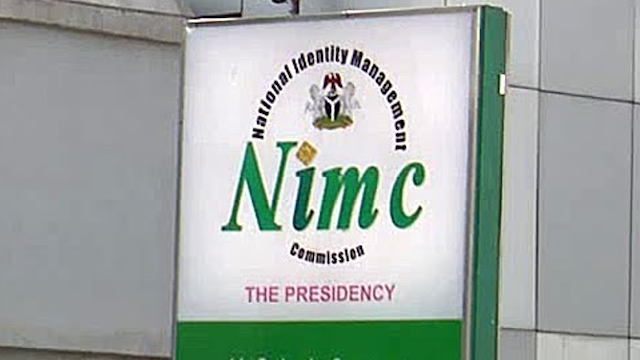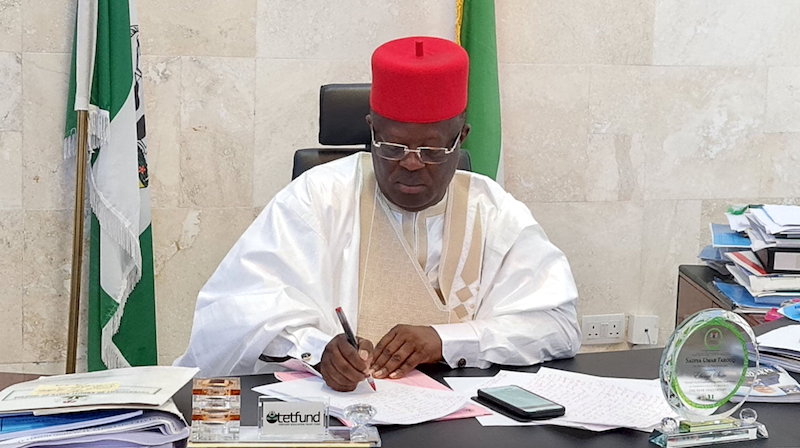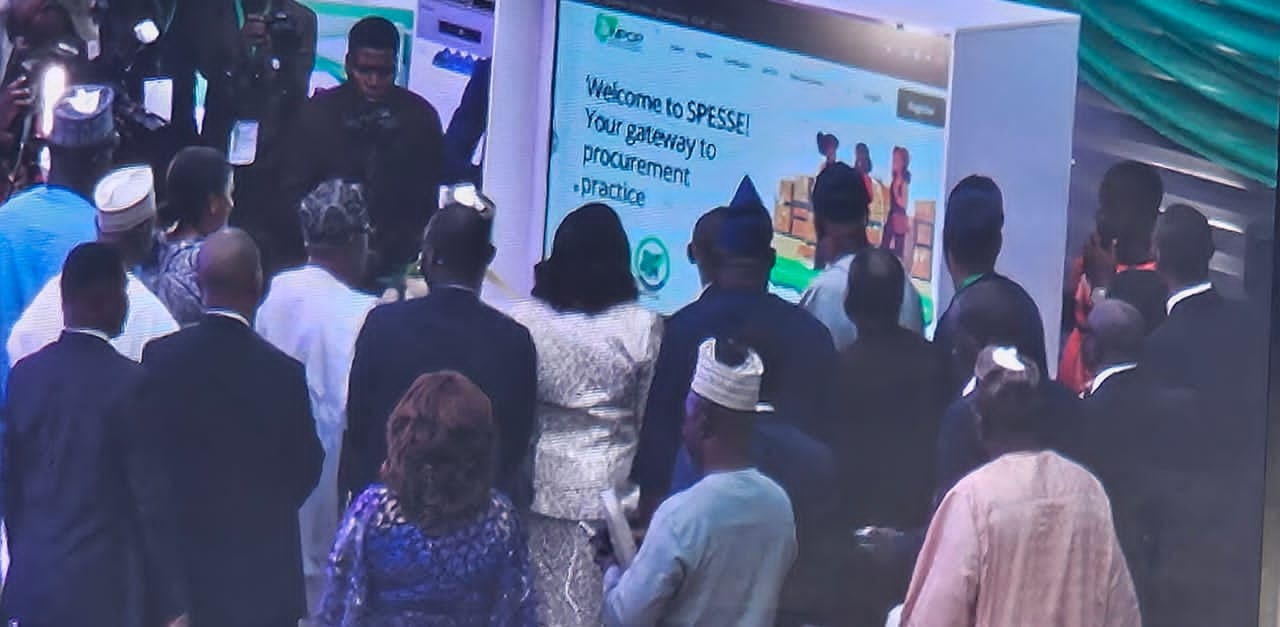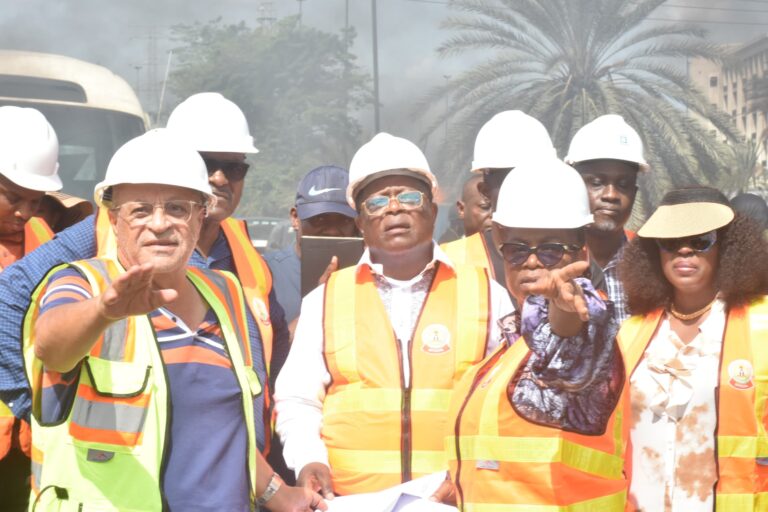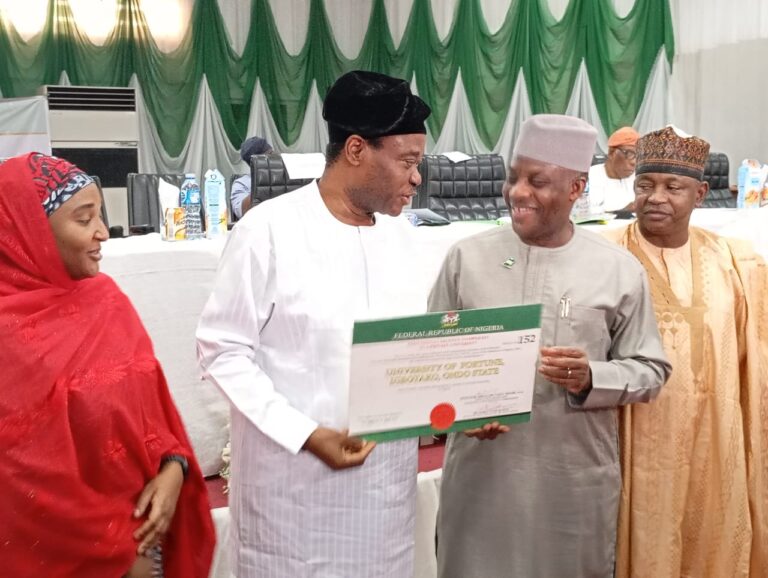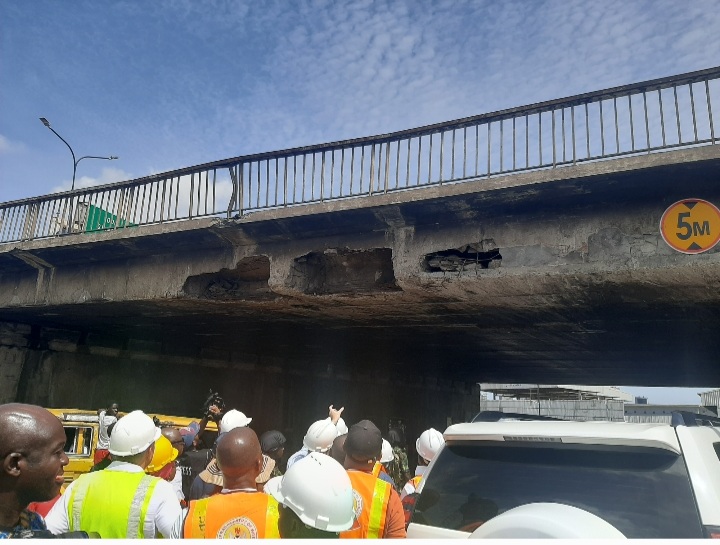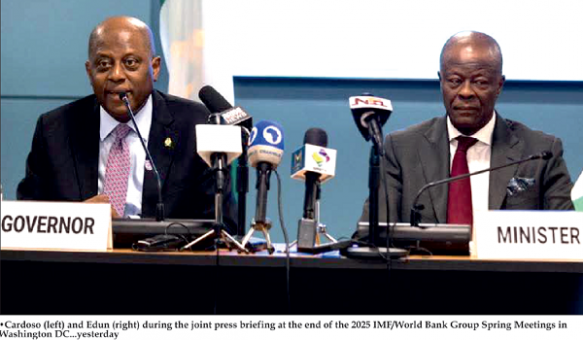The Federal Government, on Wednesday, launched the National Procurement Certification Portal, NPCP, to enhance effective and transparent utilisation of public finance to broaden economic development in the country.
The NPCP, which is a World Bank sponsored project, is the initiative of the Bureau of Public Procurement, BPP, under the leadership of its new Director General, Dr Adebowale Adedokun.
Speaking at the launch in Abuja, the Minister of Information and National Orientation, Mohammed Idris, said the introduction of the digital portal was not just a technological upgrade, but a transformative tool that would address some of the most critical challenges in public procurement.
He explained that some of the challenges included the persistent bottlenecks such as the suboptimal procurement practices, insufficiently skilled personnel, and the lack of institutionalized capacity-building frameworks.
“These challenges have long constrained the effective utilization of public resources and impeded broader economic development in the country,” he said.
He said it was a great honour for him to participate in the official launch of the digital platform developed under the Sustainable Procurement, Environmental and Social Standards Enhancement, SPESSE, Programme, in collaboration with the World Bank.
“This event represents a major milestone in the ongoing transformation of Nigeria’s public procurement system, fully in line with President Bola Ahmed Tinubu’s Renewed Hope Agenda, especially its focus on strengthening governance structures to deliver public services more effectively, transparently, and accountably,” Idris said.
He commended the Director-General of the Bureau of BPP, Dr Adedokun, “for his visionary leadership, unwavering dedication, and tireless efforts in pushing the frontiers of innovation within Nigeria’s procurement ecosystem.
“The launch of this certification portal is a testament to his bold commitment to deepening reforms and modernising the nation’s procurement processes in line with global best practices.”
He said that by offering structured certification programmes and digital access to training and evaluation, “the portal empowers procurement professionals across ministries, departments, and agencies to operate with greater competence, consistency, and integrity.”
He said that the digital portal would ensure that the procurement officers were not only compliant, but also qualified and globally competitive.
“As the Minister of Information and National Orientation, I must emphasize the importance of public awareness and stakeholder engagement in driving the success of this reform.
“The citizens of Nigeria must understand that this portal is not just a tool for government; it is a tool for them — to demand better services, to expect greater transparency, and to hold institutions accountable.
“I therefore urge all relevant agencies and public officers to fully embrace this initiative, and I call on the media, most especially, to help amplify its benefits and monitor its implementation,” he said.
The Minister acknowledged the strategic partnership and continued support of the World Bank, which he said, remained a dependable ally in government’s efforts to build a more accountable and efficient public sector.
● Consolidating effective procurement regime
Director-General of BPP, Dr. Adedokun, explained that the launch marked the beginning of consolidating all the past efforts toward having an efficient and effective procurement regime in the country through a coordinated and strategic capacity building programme for procurement officers in the public and private sectors.
He said Nigeria was one of the top emerging economies with opportunities for massive infrastructure development as being seen already under the President’s Renewed Hope Agenda.
The BPP DG, who has introduced many reforms to strengthen and curb corrupt practices in procurement process since he assumed office, said other climes have restructured their procurement systems to match the ever-evolving technologies and processes while Nigeria had remained the same over 20 years now.
According to him: “We have approached public procurement traditionally meaning one cap capacity fits all. This has placed us at a disadvantaged position against our competitors, especially the contractors who constantly modified, trained, and retrained their workforce.
“What we are doing today has already been provided for in the Public Procurement Act, 2007 wherein BPP is to perform: monitoring and oversight, harmonisation of government policies and practices by regulating, setting standards, benchmarks and developing the legal framework and professional capacity for public procurement in Nigeria and other related matters.
“Also, we are to organise training and development programmes for procurement professionals and coordinate relevant training to build institutional capacity.
“These responsibilities are enormous, but we are determined to achieve value for the development of our nation and its large teaming youth population.”
He said the gathering marked the actual take off of the consolidated approach to building capacity of public and private procurement officers who were doing businesses with the federal government, adding that the new capacity building programme was aimed at building knowledge, mastery and skills of officers that would match the expectations of all stakeholders.
“We are already engaging professional bodies to assist us in building sector-based procurement expertise that will match that of the private sector.
“This will ultimately reduce subjectivity, turn around time, wastages, poverty, enhance job opportunities for our graduates, and much more export to other developing countries.
“The programme will be implemented in phases starting with graduates from the 6 CoEs, over 7000 procurement officers, and from our colleagues from other African countries.”
● SGF, Finance Minister, HoSF commend initiative
Meanwhile, other top officials of the Tinubu administration who attended the launch of the portal commended the BPP for the milestone.
Secretary to the Government of the Federation, SGF, Senator George Akume, who was represented by the Minister of Finance and coordinating minister for the economy, Mr Wale Edun, said the launch marked a milestone in effort to transform the country’s procurement process.
Akume said that the Sustainable Procurement, Environmental, and Social Standards Enhancement [SPESSE] project was a legacy that would define professionalism in Nigeria, institutionalised transparency and efficiency across governance platforms.
He said SPESSE was the right step towards strengthening the procurement process, adding that requisite skills were needed to drive reforms around fiscal discipline, efficiency, and inclusiveness.
He, however, warned that procurement officers whose acts of ommission or commission resulted in loss of revenue would be held accountable because, according to him, “public offices are positions of trust.”
Minister of Finance, Mr Edun, in his capacity, said the SPESSE had the objectives of promoting accountability, transparency and credibility in public finance expenditure.
He harped on the need for certification, saying g it would help to address the “Japa” syndrome.
The minister said “we are at the point in time when we are set for growth and development under the renewed Hope Agenda of the Tinubu administration.”
Head of Service of the Federation, Mrs Didi Esther Walson-Jack, said certification of procurement officers was no longer optional but fundamental.
She said that certification had been made mandatory in all gi ernment activities so that oy properly-trained officers were entrusted with public procurement.
She described the initiative as noble, stressing that procurement officers must be transparent, accountable, fair, and that officers who fell short of these standards would be sanctioned in accordance with the Public Service Rules.

